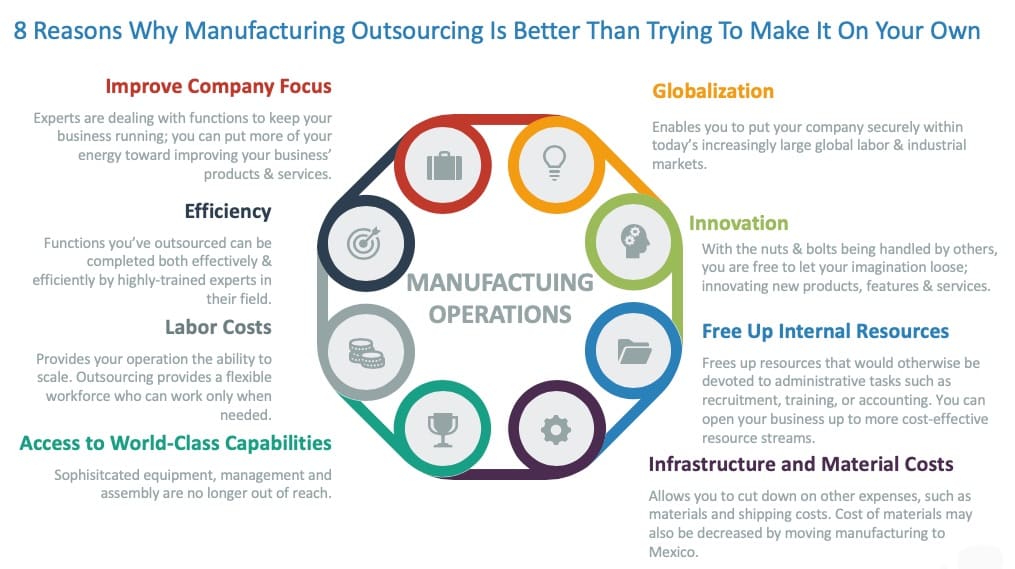Last Updated on August 13, 2025

Let’s get something straight right off the bat: quality control isn’t just a checklist. It’s a culture. It’s embedded in the way things are done—or not done—on a production line. And you know what? Mexican workers are rewriting the script on what quality really looks like.
If you’ve been under the impression that outsourcing equals “good enough,” think again. The reality on the ground in Mexico is way more impressive—and way more human—than most boardroom assumptions allow.
The Foundation of Quality Control
Quality control is the linchpin of any successful manufacturing process. It encompasses systematic measures to ensure products meet predefined quality standards. These measures span from the initial stages of production to the final inspection before products hit the market.
The Myth That Needs Busting
There’s still this lingering idea—call it a relic from 20 years ago—that outsourcing to another country is a compromise. That you’re giving up something in exchange for cost savings. But here’s the thing: companies partnering with Mexican manufacturing teams are finding quite the opposite.
You’re not lowering your standards—you’re often raising them.
And it all comes down to people.
Matching Your Production Needs with Mexico’s Workforce
Every industry has unique labor requirements, and Mexico offers a diverse talent pool to fit different manufacturing needs.
- Automotive & Aerospace: Skilled engineers and technicians trained in lean manufacturing, Six Sigma, and advanced production techniques.
- Electronics: Precision assembly workers with experience in circuit boards, wiring, and high-tech components.
- Textiles & Apparel: Artisans and skilled operators for the cut-and-sew, dyeing, and finishing processes.
- Medical Devices: Workers trained in cleanroom production and FDA-compliant manufacturing.
One of the biggest advantages is? Mexico’s workforce is highly trained and adaptable. Many manufacturers develop customized training programs to upskill workers based on specific production needs.
The Mexican Work Ethic: It's Not Just Labor—It’s Skill
Let’s talk straight. Labor costs in Mexico are competitive. That’s well known. But the bigger story is the quality of that labor.
We're talking about:
- Highly trained technicians with years of hands-on experience.
- Engineers educated in both Mexico and the U.S., trained in lean manufacturing, Six Sigma, and ISO standards.
- Workers who treat the product as if it’s their own name going on the box. Because in many ways, it is.
This pride isn’t manufactured—it’s part of the culture. There’s a strong sense of ownership that shows up in the details most people never notice... until something goes wrong. And here’s the kicker: in Mexico, those things rarely do.
Mexican work culture values loyalty, respect, and harmony. Embracing these traits is essential for companies hiring remote workers in Mexico, leading to more productive partnerships.
Unity Communications
The Cultural X-Factor
While technology is indispensable, human element remains irreplaceable in quality control. Mexican workers understand the importance of skilled labor in quality. They meticulously inspect, test, and refine products, infusing a level of care and attention to detail that sets them apart.
There’s an attitude—call it a craftsman’s mindset—that infuses even the most repetitive production tasks. It’s not “just a job.” It’s something to be done right.
And don’t underestimate the impact of proximity here, either. When U.S.-based leadership can easily visit facilities, train teams in person, or even hold bilingual quality meetings, everyone feels more accountable. There’s less lost in translation—and fewer excuses, too.

Cost-Efficiency without Compromising Quality
Mexican manufacturers offer cost-effective solutions without compromising on quality. This balance has made them preferred partners for many global brands seeking to optimize production costs while maintaining top-notch quality.
Collaborative Industry Ecosystem
Collaboration is another cornerstone of Mexican quality control. Mexico fosters a collaborative ecosystem where manufacturers, suppliers, and government entities work together to promote quality control. This synergy results in a holistic approach to maintaining quality standards.
Stringent Quality Control Protocols
Mexican manufacturing facilities are known for their commitment to rigorous quality control protocols. These protocols cover a wide range of aspects throughout the production process, ensuring superior quality.
One of the key areas where these protocols come into play is materials sourcing. Mexico places a strong emphasis on selecting high-quality raw materials and components. This meticulous selection process ensures that the product foundation is of the highest standard, setting the stage for excellence in the final product.
Real Tools, Real Outcomes
Let’s zoom in for a second. Most modern Mexican factories aren’t what you’re picturing. Forget dim warehouses or rusty equipment. We're talking:
- Real-time digital tracking
- Statistical process control systems
- Root cause analysis software
- AI-powered defect detection (in some cases, yes, really)
And guess who’s running all that? Local teams. Trained on it. Fluent in it. Owning it.
This isn’t some cookie-cutter solution. These are tailored production lines with purpose-built SOPs, where the quality control process starts well before the first unit rolls off the line.
Mistakes Happen—Then They Get Fixed, Fast
Let’s be clear: mistakes still happen. Anywhere. But here’s what sets Mexico apart—the response time.
Thanks to time-zone alignment, bilingual staff, and clear cross-border communication, things don’t get buried in email chains or bogged down by bureaucracy. You flag an issue, you get a plan. Often the same day.
It’s a speed-and-flexibility combination that’s hard to find even with domestic manufacturing. And it changes the entire game for product managers, buyers, and compliance leads.
As a nearshore production platform for the US and Canada, Mexico is unrivaled for many industries that require both low costs and speedy time to market. - BCG Consulting
Why It Matters More Than Ever
In a supply chain landscape still limping from COVID shocks, global conflict, and tariff whiplash, quality control has become the new currency of trust.
And in this moment, companies that prioritize QC aren’t just protecting their brand—they’re building resilience.
Mexico delivers on both.
Conclusion: So… Should You Worry About Quality?
Yes. Always. But if you’re thinking about partnering with a nearshore team in Mexico, don’t think of it as a step down. Think of it as stepping into a tighter loop, with more transparency, and fewer surprises.
Because when quality control matters—and it always does—Mexican manufacturing workers are more than up to the task. They’re leading it.
Frequently Asked Questions (FAQs) on Mexican Quality Control in Manufacturing
1. Why is quality control important in manufacturing?
- Quality control ensures that products meet predefined standards, enhancing customer satisfaction and trust.
2. What role does technology play in Mexican quality control?
- Technology, such as automation and data analytics, complements human expertise to achieve consistent quality.
3. How do Mexican workers contribute to global industries?
- Mexican workers' commitment to quality has made Mexican products highly sought after worldwide, benefiting various industries.
4. What makes Mexican manufacturing workers so reliable for quality control?
- Mexican workers often come with years of hands-on experience, technical certifications, and a strong cultural emphasis on craftsmanship and accountability.
5. How do Mexican workers handle challenges in quality control?
- Mexican workers exhibit resilience and determination, overcoming challenges to maintain their commitment to quality.
6. How can other countries learn from Mexican workers in quality control?
- By studying their work ethic, collaborative spirit, and innovative practices, other nations can improve their own quality control processes.
7. Is the quality of Mexican manufacturing comparable to U.S. or China?
- Yes, and in many cases, better. Proximity to the U.S., highly trained labor, and modern QC tools allow for tighter oversight and faster problem resolution.
8. How do Mexican factories ensure product quality?
- They use standard systems like ISO certifications, Six Sigma, SPC, and even advanced tools like AI defect detection in more sophisticated facilities.
9. What if something goes wrong during production?
- One of the biggest advantages of manufacturing in Mexico is quick turnaround. Issues are identified and fixed fast—often within hours, not days.
10. Are there language or communication barriers in QC processes?
- Most QC managers and production leads are bilingual. Combined with time-zone alignment and U.S.-style management systems, communication is rarely a hurdle.
Explore More: Discover Related Blog Posts
Expand your knowledge and delve deeper into more information found in our Manufacturing in Mexico Guide with our curated collection of related blog posts.
- Why Mexico Isn’t a Perfect Manufacturing Solution (and What That Really Means)
- Mexico Rewards Manufacturing Companies That Commit: Here’s Why
- Stop Waiting: Mexico Product Manufacturing Is Ready When You Are
- Mexico’s Customs Clearance: Why It’s Faster—and Smarter—for Manufacturers
- Setup Process for Manufacturing in Mexico: What You Should Know About Timelines, Permits, and Common Pitfalls
About NovaLink
As a manufacturer in Mexico, NovaLink employs a unique approach that transcends the traditional model of shelter production. More than just the location of your manufacturing, we would like to become a partner in your manufacturing in Mexico. You will be able to relocate or initiate manufacturing for your company in Mexico in a low-cost labor environment with very little delay or up-front costs. Find out how we can help you by handling the manufacturing process.
There are NovaLink facilities in the border cities of Brownsville, Texas, Matamoros, Mexico, and Saltillo, Mexico.